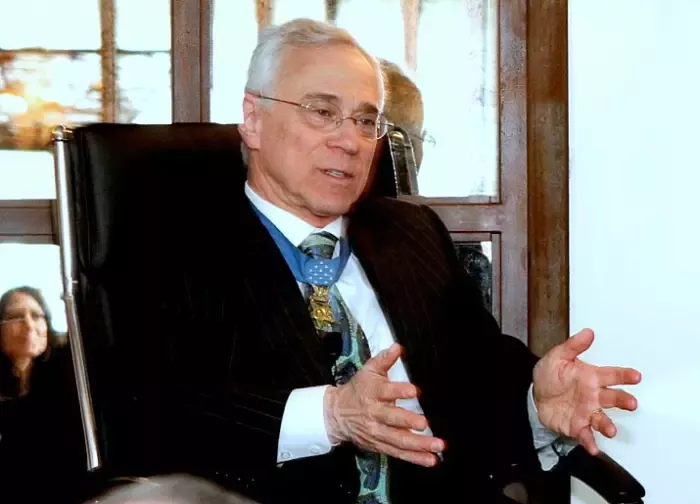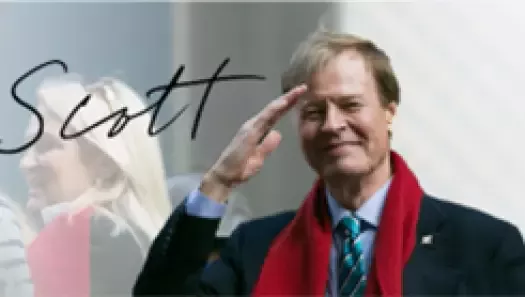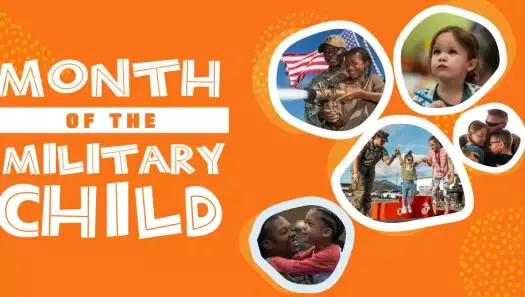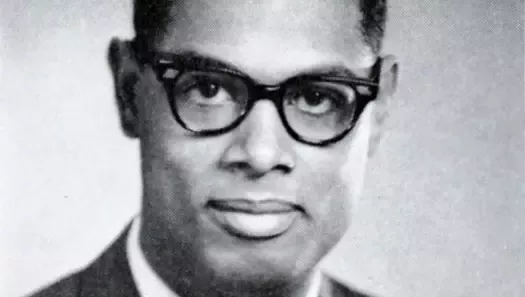WeSalute Awards
HeroVet: Col. Jack Jacobs, Vice Chairman of the Congressional Medal of Honor Foundation

In 1967, Col. Jack H. Jacobs joined the Army as a young lieutenant in Vietnam. He would serve eighteen years in the forces before retiring as a colonel and recipient of three Bronze Stars, two Silver Stars and the Medal of Honor. Today, in addition to being a military analyst for MSNBC, a former investment manager and a best-selling author, he serves as Vice Chairman of the Congressional Medal of Honor (CMOH) Foundation.
Col. Jacobs was born into a multi-ethnic Jewish family in Brooklyn, New York, a month before the end of WWII, in which his father honorably served. His family later moved to New Jersey and he entered the military through the Rutgers ROTC program.
Jacobs received the Medal of Honor for his valiant efforts on March 9, 1968, in Kien Phong province of Vietnam, where he served as a first lieutenant and assistant battalion advisor for the 2d Battalion, 16th Infantry, 9th Infantry Division. When the battalion came under heavy fire during an attack, Jacobs took action, reorganizing forces and putting his life in danger to save other soldiers desperately in need.
According to his Medal of Honor citation, Jacobs's "gallant actions and extraordinary heroism saved the lives of 1 U.S. advisor and 13 allied soldiers."
This extraordinary distinction has led Col. Jacobs to influence military and civilians alike and to become a model for generations to come. His leadership as Vice Chairman of the CMOH Foundation and promotion of the Foundation’s Character Development Program are representative of his desire to promote the education of the military values he feels contributed to his success.
Moreover, Col. Jacobs cites education as a major force in his life. "I had many positive influences, but I must attribute any success I have to my teachers in public school," he told Veterans Advantage in an exclusive interview. "Education, it is clear, is the most important thing we do." His devotion to teaching also led him to serve as a faculty member at West Point and at the National War College in Washington, D.C.
Jacobs also hopes to inspire the nation to heed the call of its military. "We have very few people who have answered the call in an environment where the United States has more threats, and many more responsibilities, than I can remember. And I think that is a very dangerous situation," he said.
As such, Jacobs is passionate and dedicated to reminding everyone about the sacrifices those in uniform make to preserve our freedom. He feels as well that his Medal of Honor is symbolic of more than just his individual heroism, commenting, "For Medal of Honor recipients, we know that we are representative of all the men and women who are currently alive and the tens of millions who have ever served, who have served valiantly whenever recognized."
TEACHING MILITARY SUCCESS
Jacobs’s passion for teaching is tied to his perspective of success. "My view is everybody who is a success in civilian life either has military experience or is innately of a military mind," he said, expressing an outlook that has pushed him to promote military education through many channels.
One of the goals of the Congressional Medal of Honor Foundation is to motivate our nation’s young people through its Character Development Program. With the support of influential educational leaders such as former U.S. Education Secretary William Bennett, it has spread to 4,400 schools nationwide.
As Vice-Chairman of the Foundation, Jacobs contributes to the program by touring and speaking to persuade others to become involved.
Primarily, the Character Development Program helps students explore the values embodied in the actions of Medal of Honor recipients. The course material, which is drawn from the oral histories of the recipients, highlights six key pillars: courage, commitment, citizenship, integrity, sacrifice and patriotism. According to Jacobs, these pillars "are used in lessons, not about war but about civics, volunteerism and community."
The program, furthermore, has created an environment in which all students, even the roughest, most cynical ones can excel, says Jacobs. He firmly believes that given the opportunity to see the path to achievement, students are capable of rising to a military standard.
"It’s all very exciting and makes a big difference among kids," he added.
Although Jacobs was not blessed with the most privileged education growing up, he strove to make the best of what he received. He was educated in New York City and New Jersey public schools, where he was known as a bright student who finished his work quickly but was easily bored. He continued to higher education, earning his Bachelor of Arts and Master of Arts degrees at Rutgers University.
Jacobs also derived great joy from teaching at such revered institutions as West Point and the National War College. He commented, "I was a colleague to the best minds—in or out of the Army—of their generation, and I was privileged to have students who would go on to acquit themselves honorably in combat, to contribute to the American experience, to rise to the top of their professions. What satisfaction!"
While teaching, Jacobs says he was frequently asked by students if he believed they would be able to act properly in combat, amid fear and adverse conditions.
"My answer is the same to all of them: yes you will. We all have a responsibility for each other, and in difficult situation fear does not win, and never wins, among people of honor." But, Jacobs adds, "you have to act."
A LASTING LEGACY
Jacobs’s efforts have been instrumental to and inspiring in the CMOH Foundation.
"There is no one who has done more for our Foundation," says Bruce Whitman, Co-Chair of the CMOH Foundation and CEO of Flight Safety International. "Over the many years we have known each other, it has been a privilege to listen to him speak knowledgeably and eloquently on many different subjects and occasions. Each time he inspires me and everyone in the audience."
Moreover, through his writing, Jacobs has made his wisdom accessible to an even wider audience. In 2008, he published his first book, a memoir titled If Not Now, When?: Duty and Sacrifice in America’s Time of Need, which he coauthored with Douglas Century, a New York Times best-selling author.
Now, in his newly released second book, Basic: Surviving Boot Camp and Basic Training, Jacobs provides instructive, funny and emotional anecdotes about men and women who have been through basic training. He also elaborates on the complexity of military combat and the heroism that can grow out of it, writing,
Courage is rarely tested in civilian life, because there is nothing else like armed combat. It is not easy to predict who will be gallant in action, and so valor often comes from those who seem least likely to display it. War is a life-altering experience, and it forever alters the resolve of the least resolute and develops instant confidence in someone who had never demonstrated it before.
For Col. Jacobs, war was indeed a life-altering experience in which he displayed extraordinary valor.
In the words of his Medal of Honor citation, Jacobs’s "gallantry and bravery…reflected great credit upon himself, his unit, and the U.S. Army." Today, Col. Jacobs is a credit not only to our armed forces but to our country as a whole, as his commitment to spreading the principles that the military taught him exemplifies his continued service to our nation.
Image Credit: https://alchetron.com/Jack-H-Jacobs-639969-W



